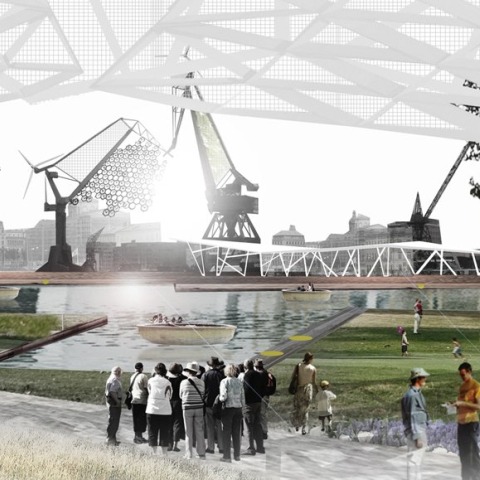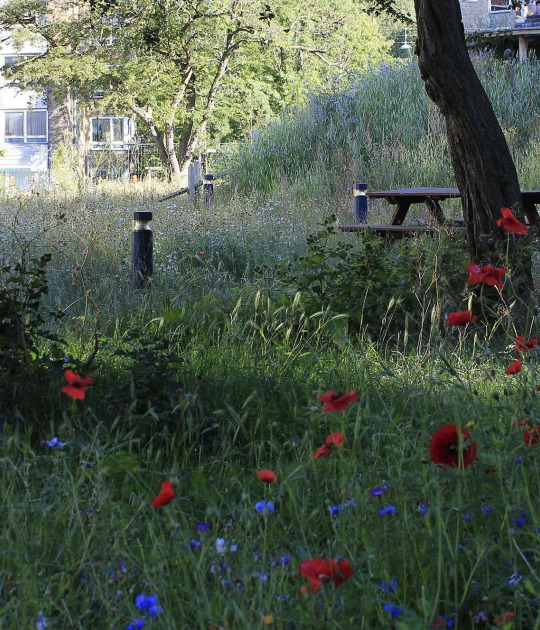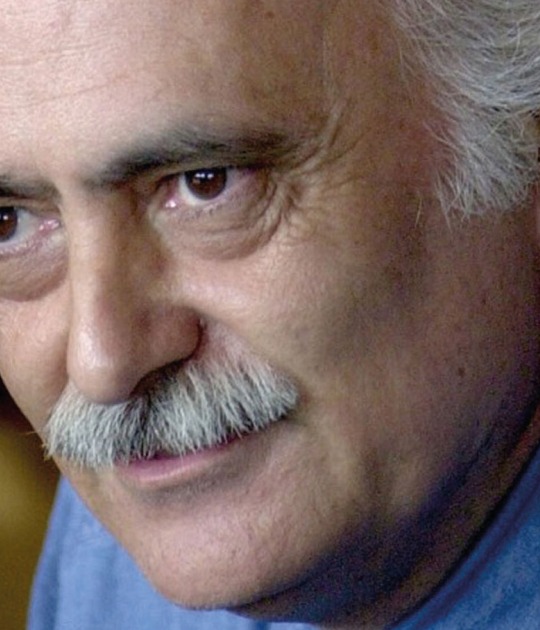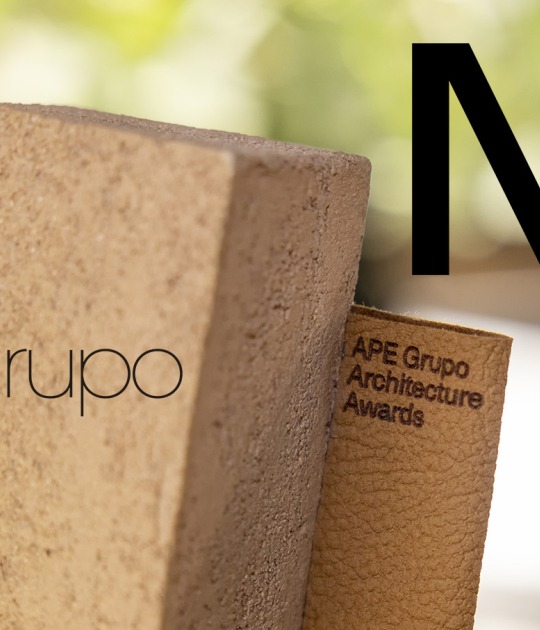Memory or project
The City of Gothenburg was founded in 1621 in the middle of struggle for both land and commerce. During the 19th century an increase of scale and systematization of mechanical workshops and early textile industries took place. Later on, the big scale shipyard industry and harbour industry took over. From the 1960’s and onwards several shipyard and industrial crises hit the city,leaving many plots empty and abandoned port machinery. High Toxic contamination levels can still be found along the river front and some port areas like Ringön and Frihamnen areas. Gothenburg is still today an industrial and harbour city divided in North and South by the river Göta älv, lacking a coherent relationship between the city and the River. The great differences between the north and south sides of the Göta River are in scale,function and density.The Gothenburg region is a growing one with approximately 930,000 people living in the Gothenburg region 13 member municipalities.
While visiting Gothenburg, I noticed the potential of the river as a urban regenerator, since I saw how the city in a vast physical part gave its back to Göta river. So I asked myself: What if the existing river become like Gothenburg's central park or a huge green system? How will this idea improve the citizens quality of life?
Project objective:
Re-introduce the Göta river to the citizens by means of a urban re-generation; the river seen as a green system connected with the existing landscape. The project consist of a set of city interventions of different scales in the city of Gothenburg which aim to regenerate the existing fractured urban tissue(riverfront- mixed use strategies), create a cohesive city, connect green spaces, re-introduce river Göta to the citizens and re-utilize some of the industrial heritage structures as active pollution and decontamination control devices via a toxic sludge pipes-extraction process and a purification system based on chemical processes to clean the air. Some of these old port cranes will now become healing catalysts in the city landscape and will also inform authorities about the river's changing levels to prevent inundations(flooding risk).Some of them will be transformed into new aviaries to allow biodiversity or will incorporate plants to grow as in a "vertical garden".
Some of the project strategies:
- Sustainability approach at human scale - urban scale, from the house to the street, from the street to the neighborhood, from the neighborhood to the city, from the city to the world.
- Re-connect both sides of the river and create links between the different neighborhoods.
- Improve soil conditions- reduce the ground contaminants produced by heavy activities, such as port and industrial operations.
- Priority is given to pedestrians and bikes, new public transports mobility strategies. New floating cells river transport system based on renewable sources.
- Improve air quality: help reduce smog levels.
- A proposal which seeks not only an esthetic improvement of the existing industrial heritage, but a energy-wise performative approach.
- New green areas/ eco-corridors replace abandoned empty concrete platforms (new public open spaces, concert areas, gardens etc). Propose a new waterscape connected with the public spaces and the existing green areas located in the city topography(surrounding hills).
- Sustainable housing and mixed-use areas replace old abandoned industrial zones.
- Introduction of renewable energies (waves, solar, wind, geothermal, etc).
- New areas for urban agriculture and floodable zones ( following Lundby agricultural tradition).
- Environment Healing Catalysts: Poor air quality + Hazardous waste.
In Gothenburg industries and energy plants account for about two thirds of the carbon dioxide emissions. The project seeks to reutilize some of the cranes metallic vertical structures to attach an Active Healing skin composed of chemical filters for Air purification, capable of capturing CO2 particles. This structures will also help to decontaminate the riverbed hazardous waste by extracting the toxic sludge, using the existing cranes platforms to locate decontamination equipments. These Cranes will act as environmental warning devices which will inform authorities of water level rises & flooding risk and will have level color indicators located on top of the structures.
Text.- JAPA Javier Ponce architects.
CREDITS.-
Architects.- JAPA Javier Ponce architects.
Location.- Gothemburg, Sweden.
Year.- 2011.
Area.- 3,500,000 m² aprox.
Status.- Proposal-Research project.

































